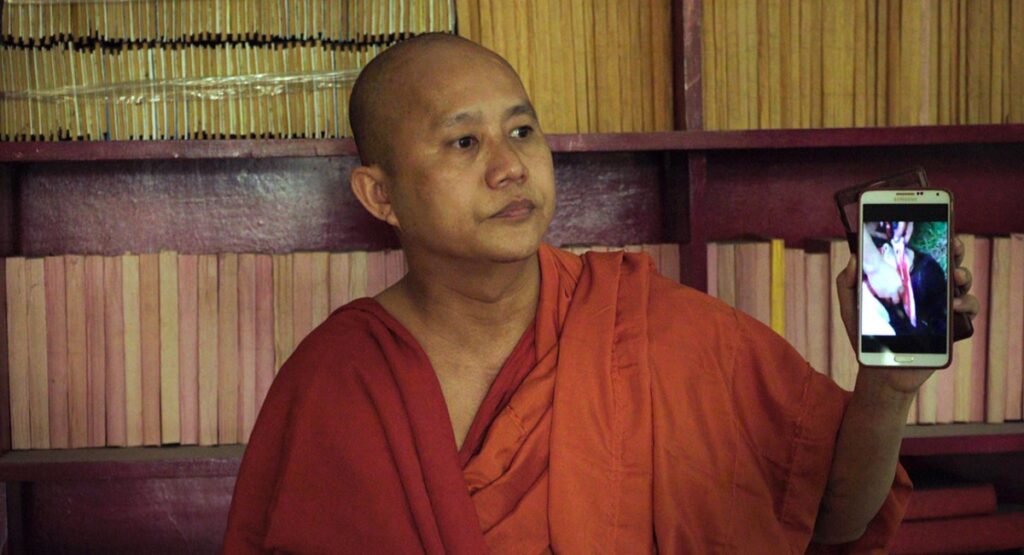If there is such a thing as the ‘banality of evil,’ surely Ashin Wirathu is a poster boy for it. An unassuming looking man with a round, boyish face and a soft-spoken, even-keeled demeanor, Wirathu lets slip a slight smile or stifled chuckle while calmly comparing Myanmar’s Muslim population to “African catfish” that are “violent” and “breed quickly.” Footage of Wirathu’s prayer meetings show the man calmly reciting a litany of outrageous claims, and a gathered crowd repeating his words back to him. He says that he prefers teaching children, as they need to know “who the enemy is and where danger is.” Director Barbet Schroeder is clearly fascinated by this man whom Time Magazine declared “the face of Buddhist terror” in a 2013 cover story. The Venerable W presents Wirathu as a Buddhist who sees no contradiction whatsoever in reconciling his religion of peace with his fomenting of violence against Burma’s Rohingya minority — a population in the tens of thousands, and one that’s in the midst of an urgent humanitarian crisis that’s rooted in long-standing cultural prejudices which have been either ignored, or tacitly endorsed, by the Myanmar government. In other words, there’s a lot going on in this documentary.
But, curiously enough, Schroeder’s film feels both overstuffed and frustratingly vague, introducing more ideas and avenues for further investigation than it can possibly manage to follow. A woman’s voiceover recites passages from Buddhist theology as a counterpoint to Wirathu’s hate-mongering, but it comes across as an easy, pat irony. By the time we near the end of the film, Wirathu has weaponized social media, his Ma Ba Tha movement a fully organized, technologically advanced operation, shooting and distributing their own propaganda films — a subject that could alone sustain a feature-length documentary. Dates and events are mentioned only briefly, or without much context — like the history of British imperialism in Burma, the military junta government, and the Saffron Revolution of 2007, which Wirathu claims to have incited even though he was in prison at the time (just one of several instances of Wirathu’s unassuming demeanor belying an incredible ego). More frustrating is Schroeder’s seeming fascination with evil as a kind of metaphysical phenomenon, which he has explored in previous documentaries, including General Idi Amin Dada and Terror’s Advocate — two films which, along with The Venerable W, constitute Schroeder’s so-called ‘Trilogy of Evil’ — and his most acclaimed fiction feature, Reversal of Fortune. Schroeder has been turning his camera on the oppressors for so long, in fact, that it’s hard not to wonder: Why doesn’t he give voice to the oppressed?
Published as part of Before We Vanish | Issue 1.


Comments are closed.